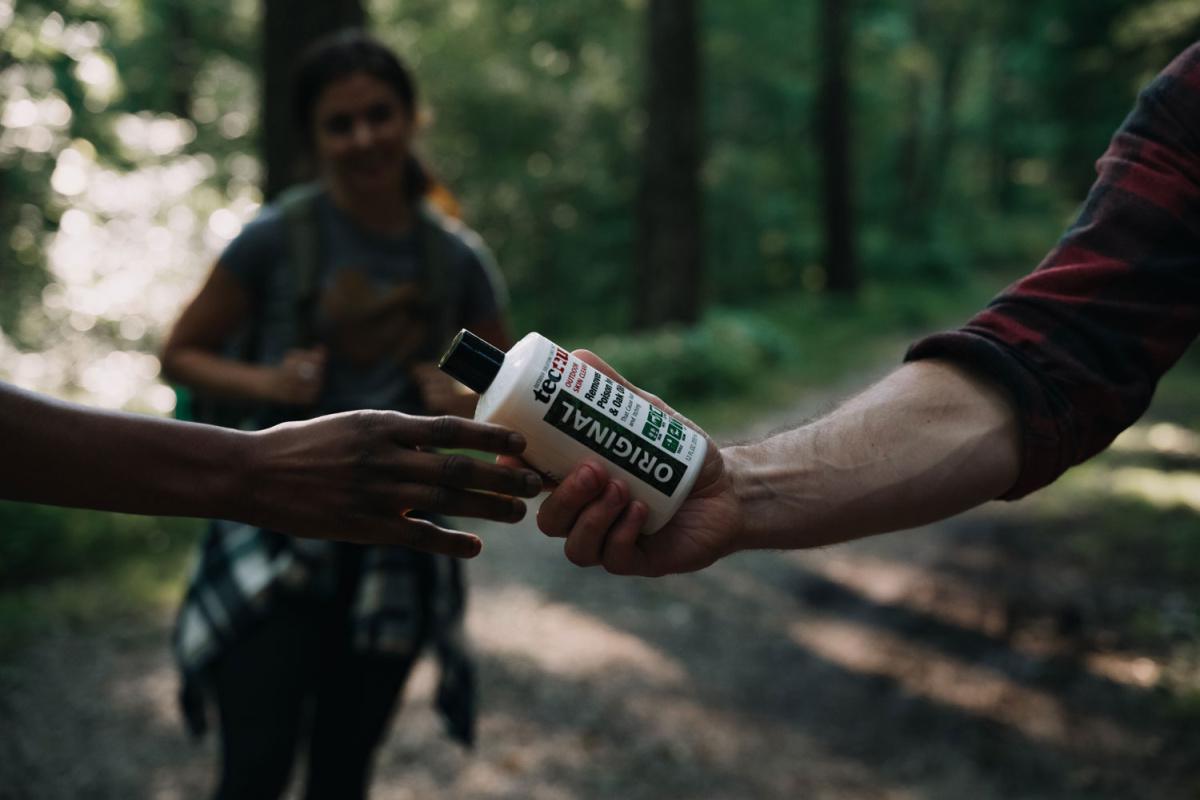According to the American Skin Association1 approximately 85% of the population is allergic to poison ivy, oak, and sumac plants. In most cases, a poison ivy rash can be treated at home with over-the-counter solutions. However, if a rash lasts for more than 2 weeks and doesn't appear to improve, it is recommended to seek care from a medical professional.
Symptoms
The symptoms and severity of poison ivy rash can vary from person to person. Generally, the symptoms of a poison ivy rash are:
- Itching
- Redness
- Swelling
- Blisters
These symptoms will typically appear within 48 hours after exposure. They can last anywhere from 2-4 weeks. In some cases, the rash appears as small scratches that are often confused with minor trail scrapes. However, most often poison ivy rash is red with small bumps or blisters. See our reference images of what poison ivy rash looks like.
How to prevent poison ivy rash
The key to poison ivy rash prevention and care is to remove the oil! Using a poison ivy wash, like Tecnu Original or Tecnu Extreme is the first step in the battle against poison ivy. If used within the first 8 hours after exposure, a poison ivy wash can remove the oil before it bonds with the skin and causes a rash. If a rash has already appeared, it is still important to remove the oil to keep the rash from spreading. In addition to cleansers, there are a few other precautions to take:
- Wear long sleeves & pants
- Wear gloves when working around poison ivy or oak
- Familiarize yourself with what poison ivy looks like
How to treat the rash
So, what is the best treatment for poison ivy and oak? The first step is to remove urushiol from the skin whether a rash has appeared or not. The second step is to wash items that could cause secondary contamination: clothing, tools, equipment, and even your dog. If a rash appears, apply a topical anti-itch treatment.
Poison ivy myths
Poison ivy rash is contagious. False, poison ivy rash is not contagious. Skin must come in direct contact with urushiol to cause a rash.
Liquid from the blisters contain can cause the rash to spread. False, by the time your body has produced blisters, the oil has been absorbed.
Eating small pieces of poison ivy plants will make me immune. Not only is this false, it is also very dangerous. Do not ingest poison ivy, oak, or sumac plants.

